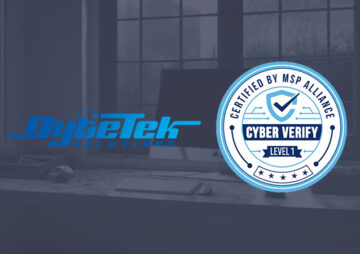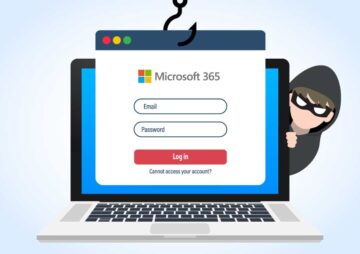
Safeguarding Against Cybercrime
In the wake of a major cyberattack that recently targeted prominent casinos and hotels in Las Vegas, the importance of robust IT services and cybersecurity measures has once again come to the forefront. The attackers, believed to be part of a cybercrime group known as “Scattered Spider,” are making headlines not just for their audacious exploits but also for their proficiency in social engineering attacks. This blog post explores the recent incidents, the tactics employed by the hackers, and the crucial role of IT services, ransomware protection, cyber security training, and email phishing prevention in safeguarding against such threats.
The Las Vegas Cyberattack
MGM Resorts, the operator of renowned establishments like the Bellagio and Aria, fell victim to a cyberattack that significantly disrupted its operations. The hackers, identified as members of the elusive Scattered Spider group, have not only targeted the hospitality industry but also hit other major U.S. companies in the past year. What sets them apart is their linguistic fluency in English, a rare trait in the predominantly Russian and Eastern European cybercrime landscape.
Social Engineering Mastery
Wendi Whitmore, a senior vice president at Palo Alto Networks, shed light on the tactics employed by Scattered Spider. The group excels in social engineering, a practice that involves manipulating individuals into divulging sensitive information. Whitmore explained that the hackers often resort to convincing help desk personnel to reset passwords, using plausible scenarios like recent travel or vacation. This highlights the importance of cyber security training to educate employees on recognizing and thwarting social engineering attacks.
Ransomware and Email Phishing
Caesars Entertainment, a rival of MGM, also experienced a cyber intrusion but managed to avoid public outages, possibly by paying off the hackers. The entry point for these attacks was a “social engineering attack” on a tech support company, emphasizing the need for robust email phishing protection. Email phishing, a common method for initiating cyberattacks, can be mitigated through advanced email security measures and employee training programs.
IT Services as a Defense
The recent cyberattacks underscore the critical role of IT services in fortifying organizational defenses. MGM employees found themselves locked out of their corporate emails, emphasizing the need for comprehensive IT support and recovery strategies. The lack of information on how the hackers gained access highlights the importance of proactive cybersecurity measures, including regular vulnerability assessments and system audits.
Collaboration and Law Enforcement
While the exact location of the hackers remains unknown, cybersecurity experts like Charles Carmakal from Mandiant stress the importance of collaboration between law enforcement and cybersecurity firms. Active investigations by the FBI and collaboration with international counterparts are crucial in tracking and apprehending cybercriminals. This collaborative approach is vital in disrupting cybercrime operations and safeguarding businesses from future attacks.
What should businesses take from this?
The recent cyberattacks in Las Vegas serve as a stark reminder of the ever-present threat of cybercrime. Organizations must invest in robust IT services, ransomware protection, cyber security training, and email phishing prevention to fortify their defenses. By staying vigilant, educating employees, and implementing advanced cybersecurity measures, businesses can mitigate the risks posed by sophisticated cybercriminal groups like Scattered Spider. As technology advances, so must our defenses against the evolving landscape of cyber threats.







